One of my students interviewed me as part of a research project on readers of fantasy books. It was an unsatisfactory experience as she had already made up her mind on the fundamental issue. Question: “What attracts readers to fantasy and science fiction? “ Answer: “A need to escape”.
This has been bugging me. Like most inaccurate clichés, it draws its power from having more than a grain of truth. I certainly do prefer reading about fantastical places and fabulous creatures to – for example – yet another account of the suffering of generations of women during the Chinese Cultural Revolution.
I do use books like other people use drugs. But I like to think that my addiction has a rather more rich inner life than that implied by fantasy = escape.
I found this article by Hari Kunzru in which he explores the current popularity of fantasy, particularly in movies such as “The Lord of the Rings”, “Harry Potter” and “The Golden Compass”. He has some interesting points to make, especially in analyzing the different roles of evil in the works of JK Rowling and Phillip Pullman, but I still feel that he reveals himself to be insensitive to the complexity of the stories he writes about.
“The fantasy boom seems to draw its energy from a contemporary desire for moral clarity, and resonates with the wider political context”
And later
“ Terrorist, orc. Bin Laden, Voldemort. Azbakhan, Camp X-Ray. As in politics, so in literature. Out go ambiguity and irony, the defining tropes of the affectless eighties and nineties. In come comfort-stories, and worlds which, unlike our own, come equipped with ethical GPS systems for accurate moral route-planning.”
There is a lot of truth in this. Much of the satisfaction one gets out of reading fantasy is that clear division between good and evil which is so much muddier in our own world. But it ignores that aspect of fantasy that is central to its attraction: that exact exploration of moral ambiguity that it is supposed to ignore.
In this article for The Ethical Spectacle, the author states that this very a-moral nature of fantasy can be used to actively depict morally reprehensible acts, and get off “scott free”. Writing about Blade Runner:
“The spectacle of Harrison Ford relentlessly hunting down and killing a half-clad woman in Blade Runner was justified by the plot device that she was a murderous android without feelings; but we were still watching a actress playing a character who ran, dodged, tried to survive, and (as I recall) bled when shot. “
from altfg.com
But what these accounts ignore is that these stories are about moral ambiguity. The story starts off with a seemingly clear divide between good and evil, and then proceeds to introduce subtle and troubling overlaps between the two. In Blade Runner, the movie gradually blurs the difference between human and replicant, and the hero is brought to face the nature of his earlier acts of violence. There is a deep sadness in this story that lifts it above most science fiction and fantasy gore fests, and interestingly enough it is this very moral complexity is which is ultimately the reason it has remained popular for so long.
In the best fantasy, you see the true shape of things in the distorting mirror of the story. Moral issues are stripped of their familiar context and so become more starkly drawn. Jason Smith also uses this metaphor of the mirror of fantasy in this article on Escapism and Fantasy
“We are all born with the need for escape; for some, studying the reflection of an alien landscape makes it easier to see the common wisdom linking our heroes’ lives with our own – familiar lessons stand out against an unfamiliar backdrop.”
I think of the manner in which the XMen comics and movies explore the concept of difference. The fate of mutants in human society resonates so strongly with issues of racism and homophobia, and all the other hateful reactions to individual difference. No answers are offered. Magneto’s and Xavier’s opposing views are presented strongly and equally. Xavier believes in the power of love, and the ultimate possibility of humans accepting mutants as different but equal. Magneto cynically doubts the ability of humans to accept creatures so different and so powerful, and strives for the destruction of humanity so that mutants can thrive. And although Magneto is unquestionably the villain, like all good villains he also has the best lines and you are left with no easy way out of the moral conundrum.
In “Inkheart” and “Inkspell” Cornelia Funke writes about an author who abdicates responsibility for the lives he creates. Much of the power of the story rises out of the moral ambiguity of the characters, for example the wonderful Dustfinger and his uncanny power over fire. The characters in these stories are caught in inner struggles for love and power, for self and other.
On less of a “swords and sorcery” note, Diana Wynne Jones uses her characters fantastical abilities to explore an adolescent’s transition from self absorbed youngster to a more mature and self critical self appraisal.
In this satisfying account of the controversy surrounding The Lord of the Rings, David Robertson writes:
“Which brings us neatly back to Tolkien. He did create a world in which there was history and mystery. A world in which there were no easy answers and where there was real and confusing conflict between right and wrong. It is a fantasy world. But maybe it is more indicative of the truth than much of what we perceive as reality..”
The most obvious example of this moral complexity in The Lord of the Rings is the role of Gollum. In fact it is the very clarity of Ork versus Elf which casts into relief the impossibility of clear moral judgement of a character like Gollum. When Frodo says that Gollum deserves to die for his evil actions, Gandalf says:
“Many that live deserve death. And some that die deserve life. Can you give it to them? Then do not be too eager to deal out death and judgement. For even the wise cannot see all ends.”
If you enjoyed this, you might also like:
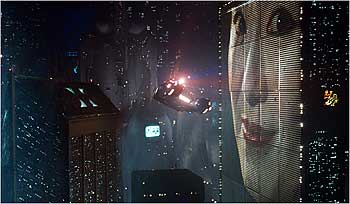


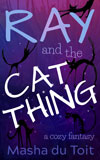

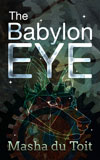


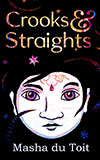

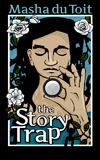


Jun 23, 2009 @ 19:29:14
Amazing post. Thank you so much for bringing it to my attention. I agree that fantasy, the best fantasy, does explore moral ambiguity. Another thing that people seem to forget is that not all fantasy stories are about Epic Battles between Good and Evil. A lot are much more personal and introspective. It’s a huge genre, and it’s a lot more diverse than people give it credit for.
Jun 23, 2009 @ 19:35:32
Thanks Nymeth. I am rather defensive about this topic. In the end, when I come across people who are prejudiced against fantasy I want to say “just think about all those grand books you will never read!”